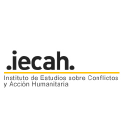PERSONNEL COSTS
1) COSTS OF PERSONNEL WORKING UNDER AN EMPLOYMENT CONTRACT WITH THE HUMANITARIAN ORGANISATION OR AN EQUIVALENT APPOINTING ACT, AND ASSIGNED TO THE ACTION.
These costs may include:
- social security contributions;
- other statutory costs included in the remuneration.
Condition: these costs must be in line with the Partner's usual policy on remuneration (e.g. sick leave indemnities).
- Additional remunerations, including payments on the basis of supplementary contracts regardless of the nature of those contracts.
Condition: they are paid in a consistent manner whenever the same kind of work or expertise is required, independently from the source of funding used (e.g. hardship allowance).
- Severance payments due at the end of employment contracts.
Conditions: such payments arise from a statutory obligation under the applicable labour law (and not contractual arrangements) and are charged to the Action only for the portion which corresponds to the share of the total working time spent on the Action. Accrued severance payments not payable immediately are acceptable.
- Costs of travel and related subsistence allowances for employees taking part in the Action, including headquarters’ employees conducting field monitoring missions.
Conditions: a direct link to the Action can be easily demonstrated; the costs are in line with the Partner's usual practices on travel; in the case of monitoring missions covering several projects, only the portion of the costs of travel and related subsistence allowances which corresponds to the share of the total mission time spent on the Action is taken into account.
2) COSTS OF NATURAL PERSONS WORKING UNDER A CONTRACT WITH THE HUMANITARIAN ORGANISATION OTHER THAN AN EMPLOYMENT CONTRACT
These costs are, for example, the costs of in-house consultants, advisors or volunteers. They may be assimilated to costs of personnel.
Conditions: the natural person should work under the instructions of the Partner and, unless otherwise agreed, in its premises; the results of the work belong to the Partner and the costs are not significantly different from the costs of staff performing similar tasks under an employment contract with the Partner.
If these conditions are not met, then a consultant is considered a service provider under a service contract, thus the procurement rules apply.
3) THE COSTS OF ALLOWANCES AND OTHER BENEFITS FOR VOLUNTEERS ASSIGNED TO THE ACTION
4) HQ STAFF (ONLY IN THE FOLLOWING CASES)
- If the costs relate to the monitoring of the action in the field.
- If the costs relate to a specific task necessary for the achievement of the Action operational results and have accordingly been identified as an operational activity in the Single Form.
- If the costs relate to the preparation of the Final Report within the limits mentioned in the general conditions ((salary of maximum 1 full time staff or equivalent, for the period of the Final Report specified in the SGA + the overheads linked to the work of this staff).)
In such cases HQ salaries or a portion of these may be directly eligible, provided that the assignment of the HQ staff to the Action are traceable, e.g. through timesheets or other similar means (e.g. the cost-allocation procedures of the partners).
Please note that costs relating to the general grant management support are not eligible as they are considered as part of the capacity of the partner and covered by indirect costs.
REFERENCES:
GENERAL CONDITIONS, Article 8.2 A); FPA GUIDELINES, Section 9.3.2 A)
EQUIPMENT AND GOODS
EQUIPMENT COSTS
Equipment refer to durable items that can be used multiple times over their estimated economic useful lifespan.
They comprise both support equipment, intended to assist the implementation of the Action, and operational equipment, intended for the direct benefit of the beneficiaries.
New or second-hand equipment used for the Action may be charged under the following options:
- depreciation rate
- rental cost
- lease cost
- full purchase price
DEPRECIATION
It is used if the Partner has purchased the equipment using its own funds.
Conditions: The rates taken into account have to be recorded in the accounting statements and have to be in line with:
- partner usual accounting practices;
- the applicable national legalisation where the partner is established;
- international accounting standards;
- the principle of economy and efficiency;
- the principle of proportionality (only the portion of the actual use is taken into account).
When the partners collaborate with implementing partners which are FPA partners, the FPA partners can use their own depreciation rates.
Where the durable equipment belongs to an implementing partner which is not a FPA signatory, the implementing partner should use a depreciation rate and methodology which is at least comparable or consistent with the one used by the partner for durable equipment in that Action. This is to avoid having different depreciation rates applied in the same Action which would be hard to reconcile or justify.
When applicable depreciation procedures allow an accelerated depreciation in emergency contexts, ECHO expects that the depreciated equipment will be used in subsequent actions.
Depreciation rules apply to second hand equipment, provided that the appropriate actual useful life of the asset is taken into account.
If the durable equipment was bought using donor funding during a previous Action and in cases where a donor has already paid or co-financed the purchase cost of a piece of durable equipment the related depreciation or rental costs can never be charged to a future ECHO funded Action - to do so would be contrary to normal financial safeguards and would constitute double funding.
In these cases, it may still possible to charge the maintenance and running costs of that durable equipment to the Action's budget.
RENTAL
Rental costs of equipment are eligible.
Conditions: only the portion of the equipment's rental costs, corresponding to the rate of actual use for the purposes of the Action is taken into account and the adequate procurement procedures have been respected.
LEASING
Lease costs of equipment are eligible.
Conditions: these costs are exclusive of any finance fee and only the portion of the equipment's lease costs, corresponding to the rate of actual use for the purposes of the Action is taken into account.
PURCHASE
Purchase costs of equipment are eligible.
Conditions: they respect the procurement eligibility conditions and the rules about their disposal at the end of the action.
SPECIFIC CASES
- Equipment purchased towards the end of the action is in most cases considered as not necessary for the Action and will be declared ineligible unless duly justified operationally.
- Stationary has to be considered as equipment, and, as a general rule, has to be included in indirect costs or field office costs. Stationary items necessary for a specific activity (e.g. for a training for beneficiaries) are eligible as direct costs.
- As concern stocks, please refer to table below
GOODS COSTS
Goods refer to items intended for direct consumption or use by the beneficiaries including nondurable items and consumables.
The costs are eligible when the good is directly assigned to the Action, including costs related to transport, storage and distribution, provided they respect the procurement conditions and the rules about their disposal at the end of the action.
Information on goods have to be provided in the Single Form in Section 6.3
REFERENCES:
GENERAL CONDITIONS, Articles 8.2 c) and d); 9 and 10; FPA GUIDELINES, Section B); SINGLE FORM GUIDELINES, Section 6.3;
FAQs Nr. 25,82,99
STOCKS
In order to respond quickly and effectively, the partners often need to purchase supplies in advance and to constitute stocks.
For eligibility purpose, ECHO makes a difference between two types of stocks: stocks constituted in advance of an Action and stocks pre-positioned (or stockpiling) in advance of possible disasters.
PRE-CONSTITUTED STOCKS
Are goods or equipment bought before the Action funded by ECHO.
For ECHO, these stocks will be considered as incurred when distributed or used during the eligibility period of the Action, no matter the purchase date.
The procurement rules and quality requirements specified in Annex III must be respected.
In Single Form the partners can declare the following costs
- Historical purchase price or inventory costs and
- The costs relating to the distribution of the supplies.
PRE-POSITIONING/STOCKPILING
It consists in the constitution of emergency supplies not intended for immediate use, with the objective of reinforcing the emergency/disaster preparedness in third countries. These stocks, managed by a partner and constituted with ECHO's support, should be made available to all ECHO partners in case of emergencies.
The costs of the supplies will be considered as incurred when the supplies are delivered to the warehouse of the Partner. As concerns the costs to be charged in case of pre-positioned stocks, it's due to make a distinction among:
a) Stocks pre-positioned but not distributed during ECHO Action. In this case, the partner can charge to the ECHO funded Action the following costs:
- Purchase costs
- Transport costs to the warehouses
- Warehouses costs during the eligibility period
If the supplies are distributed in a follow-up Action funded by ECHO, the distribution costs can be charged to that follow-up Action.
b) Stocks pre-positioned and distributed during ECHO Action. In this case, the eligible costs are:
- Purchase costs
- Transport costs to the warehouses
- Warehouses costs
- Distribution costs
INFORMATION TO BE PROVIDED ABOUT PRE-POSITIONED STOCKS
As pre-positioning/stockpiling is not for immediate use, the reporting rules are stricter than for other type of stocks. The partner will have to provide in the Single Form of the actions under which the stocks are purchased the following information:
- At proposal stage: The pre-positioning should appear in one of the results of the action. The partner will explain why the stocks should be constituted, the nature of the supplies and how they will be handled (for instance, in case the disaster or emergency, in case limited period of usability).
- At report stage: If the stocks were used during the action, explain in the narrative sections of the Single Form the use that was made of the stocks. If the stocks were not used, update if necessary the information provided at proposal stage on the handling of the stock.
- After the action: In order to avoid risks of double funding, the partner should clearly label the stocks. The partner should also, at any time, be able to trace the stocks and explain its use. (For instance in case of an audit).
EXCEPTION
In certain countries, in view of possible follow-up Action, partners may be authorised to preposition stocks to avoid rupture in the procurement pipeline, subject to the following conditions:
- the delay in procuring or delivering of supplies should be due to objective logistical reasons and should not be due to problems in the procurement process of the partner that may be avoidable or manageable.
- The stocks should be proportionate to the identified possible gap in the procurement chain.
- The other stockpiling conditions (inclusion as a result in the Single Form, reporting obligations, stocks available to other partners if needed) remain applicable.
REFERENCES
FPA GUIDELINES, Section 9.3.2 B)
SPECIFIC GRANT AGREEMENT RELATED COSTS
Costs arising directly from requirements imposed by the Specific Grant Agreement provided that the corresponding services are purchased in accordance with the applicable procurement rules. These costs include (not exhaustive list):
- bank fees for transfers to the country of operation;
- insurances;
- dissemination of information;
- evaluation and monitoring of the action (See Section 8 of the Single Form guidelines) ;
- quality assurance measures, e.g. related to food or medical supplies quality control;
- translation, reproduction, etc.
Condition: the corresponding services are purchased in accordance with procurement eligibility conditions.
COSTS ENTAILED BY IMPLEMENTING PARTNERS
Costs entailed by Implementing Partners can be eligible.
Conditions: the prospect of having recourse to Implementing Partners shall be presented, explained and justified in the Single Form (Section 6.7), having regard to the nature of the Action and the necessities linked to its implementation; In the Single Form should be provided also the estimated budget share that would be allocated to the activities carried out by Implementing Partners.
COSTS LINKED TO THE MANAGEMENT OF THE CONSORTIUM
Costs directly linked to the management of the consortium such as liaison officer, administrative support, audits, logistics support, monitoring of the associated partners activities are eligible costs as long as they are reasonable and verifiable.
FINANCIAL SUPPORT TO BENEFICIARIES
The financial support to beneficiaries, in most cases, shall take the form of either cash or vouchers. These costs, including the distribution costs are eligible if the conditions established by the article 11 of the General Condition are respected.
FAQs Nr. 84
COSTS OF PROCUREMENT CONTRACTS
In order for the cost of procurement contracts to be eligible:
-
the procurement must support the timely, efficient, effective achievement of the actions
-
the contract has to be awarded to the tender offering the best value for money or the lowest price
-
access to contractor must be guaranteed for audit and other checks
IN KIND RELATED COSTS
A contribution in kind includes the provision of goods and services to the partner, which does not involve the provision of money.
In this case, the only eligible costs are those that are related to accepting or distributing the contributions in-kind, where it is mentioned in the Section 10.5 of the Single Form; the related running costs may also be considered eligible, if they are directly linked to the implementation of the Action.
FAQs Nr. 39
COSTS OF TRAVEL
Cost of travel and related subsistence allowances for employees taking part in the Action, including headquarters’ employees conducting field monitoring missions are eligible. These costs must however be directly linked to the Action, and in line with the partner's usual practices on travel.
In the case of missions covering several projects, only the portion of the costs of travel and related subsistence allowances which corresponds to the share of the total mission time spent on the Action is taken into account.
SHARED COSTS
The partner may share costs such as costs of infrastructure in the field, in particular, field offices, among different uses and Actions. These costs will be eligible if calculated according to a cost allocation system that takes into account only the portion of the costs which corresponds to the rate of actual use of the infrastructure for the purposes of the Action.
COSTS OF INFRASTRUCTURE
Costs of infrastructure in the field, in particular field offices, directly linked to the Action are eligible.
The costs of renting or depreciation of field offices may be considered eligible, provided that only the portion of the costs which corresponds to the rate of actual use of the infrastructure for the purposes of the Action is taken into account. The term “infrastructure in the field in particular field offices” also covers the running costs of the field office. However, it does not cover the costs of purchase of the field office.
REFERENCES
Guidance note on Simplified cost Method for Field Office costs
FAQs nr. 40, 82, 119, 120
SIMPLIFIED COSTING
As a rule, the grant awarded by ECHO consists of the reimbursement of eligible costs declared as actually incurred and of eligible indirect costs declared on the basis of a flat-rate.
The General Conditions foresee that the grant can also take the form of a reimbursement based on unit costs, lump-sum or flat-rate costs.
While this is not the standard option for ECHO, should the partner wish, for well-motivated reasons, to apply this approach, it will have to contact ECHO, which will carry out a specific assessment of the partner’s accounting practices.
For Simplified costing contact: ECHO-LEGAL-AFFAIRS@ec.europa.eu
FAQs Nr. 41
VISIBILITY COSTS
STANDARD VISIBILITY
To comply with the obligation of standard visibility the Partner can charge to the DG ECHO funded Action up to 0.5% of the direct eligible costs with a maximum of 8,000 € per Action.
ABOVE STANDARD VISIBILITY
More expenditures may be claimed only in case above standard visibility activities were approved.
In any case, please remember that only institutional communication is financed through the visibility information communication costs and appears under section 9 of the Single Form, while the operational communication must appear under the appropriate result and sub-sector. This means that operational information products developed within the context of an Action (such as training manuals, hygiene promotion radio messages, advocacy leaflets, etc) must be described in the section 4 and the related cost will be covered by amount allocated for this result





